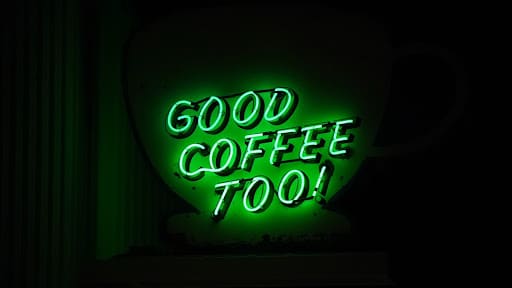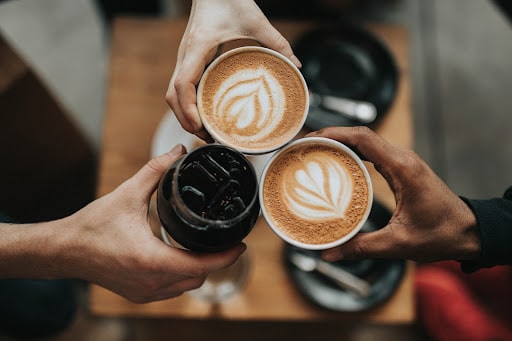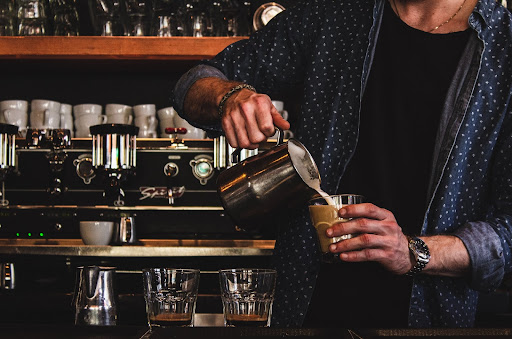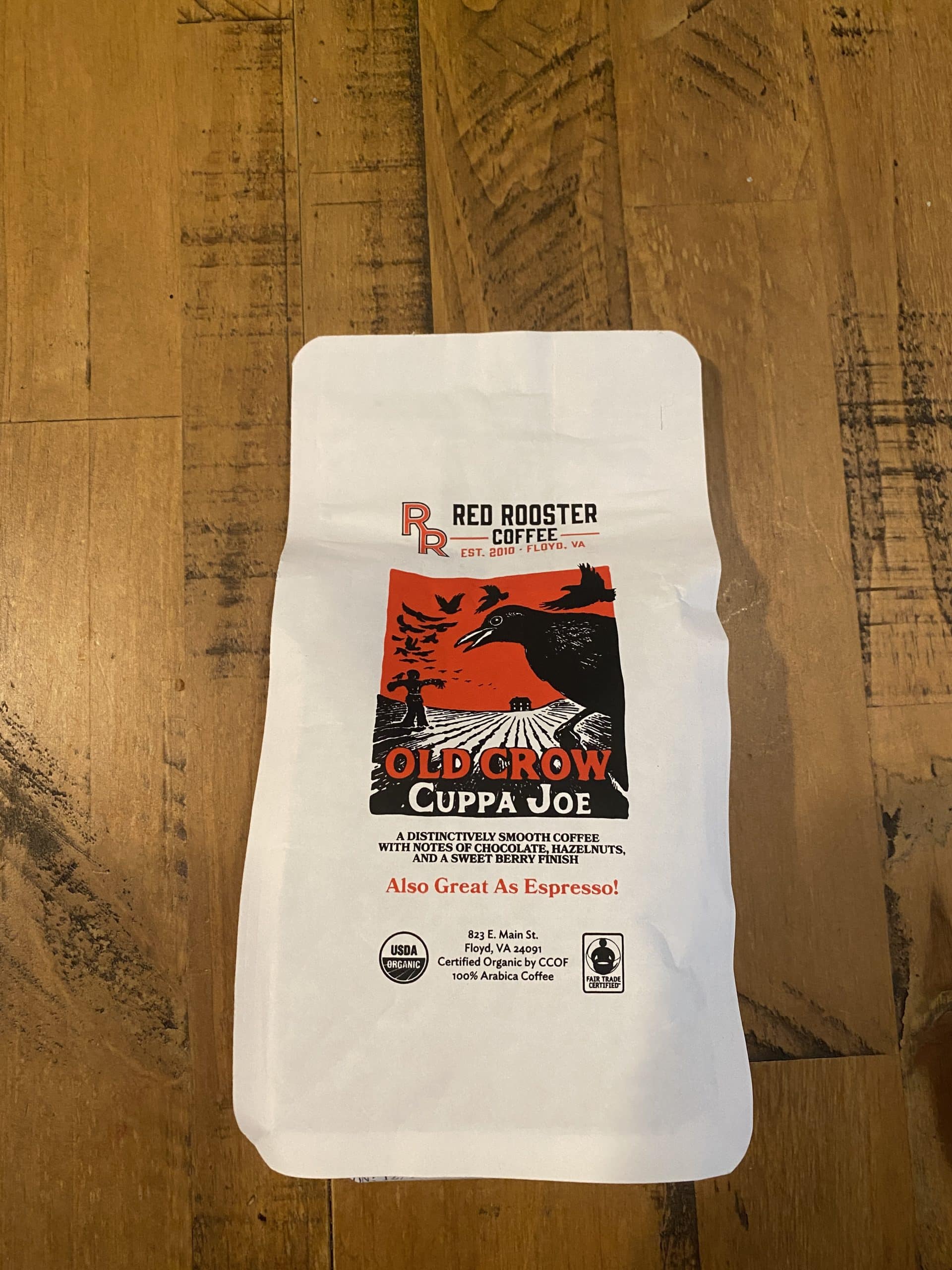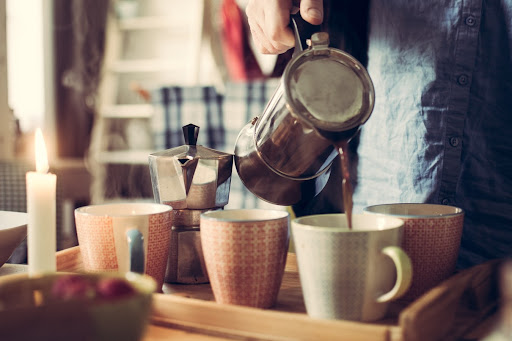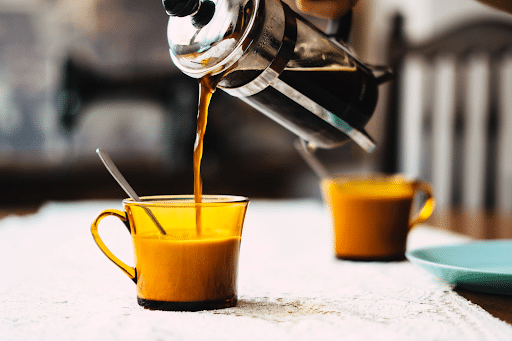Decaffeinated coffee doesn’t always score the highest marks with regular coffee drinkers. However, the best decaf coffee does exist.
Some even joke, “Decaf? That’s no fun! What’s even the point of drinking decaf?”
Well, the point is, a cup of coffee is delicious, and some of us want to enjoy it no matter the time. Especially for the caffeine-sensitive crowd, the heyday of caffeinated coffee is long gone.
Whatever your reason for choosing to drink decaffeinated coffee, you shouldn’t have to sacrifice flavor. You deserve the best-tasting decaf coffee beans available.
That’s why we went ahead and compiled this list of decaf options for coffee lovers like you. This list of the best decaf coffee brands will satisfy your need for rich coffee taste — hold the jitters!
From budget-friendly picks to exclusive mail-order-only blends, we’ve got it all.
How Does Coffee Become Decaffeinated?
The long-time, go-to method for decaffeinating coffee involves using chemical solvents. They’d steam coffee beans before rinsing them with ethyl acetate or methylene chloride. By repeating this chemical rinse, caffeine eventually flushes out of the beans.
Sounds a little … less appetizing than we would like!
What if there was another way?
There is!
Enter the Swiss Water Decaffeination Process.
This method skips the chemical solvents and relies on water and carbon filtration instead.
First, raw coffee beans soak in hot water. This separates them from their caffeine (along with other soluble solids). The water then rushes through a carbon filter that catches the caffeine molecules. The remaining water is now essentially green coffee bean extract.
Next, they use this extract to soak a fresh batch of green coffee beans in. This step removes the caffeine from the new beans while infusing them with all the rich coffee flavor from the first batch soak.
Then another run through a charcoal filter to catch the new caffeine molecules, and voila — another batch of green coffee bean extract is ready for a future batch of decaf coffee.
The soaked and decaffeinated coffee beans are now ready for drying before they go through the roasting process.
There’s also a third, relatively new way of removing caffeine involving carbon dioxide. Using high pressure, this method removes caffeine while leaving the coffee flavor compounds intact. It’s efficient — but expensive!
How Much Caffeine Does Decaf Coffee Have? Is it Truly Caffeine-Free?
To qualify as decaf coffee, the USDA states that it should contain no more than 0.10% caffeine. Most decaf coffees have 97% of their caffeine removed.
An average eight-ounce cup of decaf coffee has up to 7 mg of caffeine (compare this figure to the 70-140mg in a regular coffee).
The Swiss Water Method removes up to 99.9% of the caffeine.
So, while it’s not entirely caffeine-free, decaf gets pretty dang close.
Looking for a New Brew Method? Try the Turkish Coffee Maker.
Our Top Picks for Flavor
The most delicious coffee you can buy while still drinking decaf. These high-quality decaf options will tantalize your senses (and they won’t hit your wallet too hard, either!).
Stumptown Coffee Roasters: Trapper Creek Decaf
Portland’s own Stumptown Coffee Roasters relies on the Swiss Water Process for their full-bodied Trapper Creek decaf. It’s a medium roast with beans sourced from Africa and South America.
While the caffeine is limited, the flavor is not. Let the tasting notes of cocoa, graham, and dried fruit roll around your tongue while you exclaim, “there’s no way this is decaf!” It’s like drinking a slice of hot buttered raisin toast … in fact, maybe you should pair it with that.
This sweet decaf blend is great for espresso or drip brew, but Stumptown recommends you French press it.
You can order a 12-ounce bag of whole bean coffee for $16 or stock up with a five-pound bag for $80. Or, sign up for a subscription, with options from every week to every four weeks.
Since they only offer whole beans, not ground coffee, make sure you’ve got a nice coffee grinder at home!
Jo Coffee: No Fun Decaf
Don’t let the tongue-in-cheek name fool you; this decaf roast coffee is tons of fun.
Jo Coffee is everything we love in a decaf coffee brand:
- Organic
- Kosher
- Fair Trade certified
- Uses the Swiss Water Process
This full-bodied medium-dark roast will knock your socks right off with tasting notes of juicy sweet blueberries and milk chocolate. You can choose between whole bean, auto-drip grind, or even get these as coffee pods (K-cup brewer compatible).
Pricing is the same whether you buy on Amazon or off their website at $12.49/12-ounces. If you have Amazon Prime, use that sweet free two-day shipping!
Or spend over $35 to qualify for free U.S. shipping directly of jocoffee.com. If you order Fun Jo decaf through their website, your order will roast and ship within two business days.
Joshua Tree Coffee
Here’s a decaf coffee brand you may not be familiar with … yet!
Joshua Tree Coffee, in the Mojave desert, small-batch roasts the best certified organic coffee beans they can source.
They call their organic decaf coffee simply: Delicious Decaf.
It’s a medium roast with 99.9% of the caffeine removed through the Mountain Water Processing Method (similar to the Swiss Water Process, but using water from mountains in Mexico).
They offer a whole slew of grinds (as well as whole bean coffee):
- Auto drip
- Espresso
- French press
- Pour-over
- Pour-over (fine)
- Percolator
- Siphon
- Moka
Order a 12-ounce bag for $14 or sign up for a subscription to their coffee club for 10% off.
Best Subscription Decaf: Blue Bottle Coffee
You can order this decaf as a one-time purchase, but you’ll get more options and free shipping if you sign up for a Blue Bottle subscription plan.
Their Night Light decaf will knock your taste buds out of the park. With quality coffee beans from Sumatra and Central America, the tasting notes are unique — creme brulee, vanilla, and key lime.
Blue Bottle Coffee relies on the Swiss Water Process to decaffeinate their creamy and versatile Night Light coffee.
Blue Bottle Coffee is fresh, fresh, fresh roasted. It ships to you no more than 48 hours after roasting. One caveat is that it’s only available as whole beans at this time. Get your burr grinder ready!
Best Decaf for Cold Brew: Stone Street Coffee
This concept, decaf cold brew, blew us away at first. After all, part of cold brew’s killer rep is that it packs a significant buzz.
Are we saying you can have the smooth, sweet taste of cold brew without being wired for the rest of the day?
You bet we are.
100% arabica beans undergo the Swiss Water Process before being medium roasted and packaged by the pound.
Make your cold brew stronger with less water or weaker with more water. Either way, you’ll enjoy a cup of coffee that’s not only lower in caffeine — it’s lower in acidity, too!
Stone Street’s coffee is Kosher certified, and you can order their Swiss Water decaf as whole beans or already ground for cold brew.
Prices start at just $15 for a whole pound, or you can subscribe and save 10%.
Heard About the French Press Brew Method? Learn more here.
Best Budget Picks
If you’re looking for the most decaf bang for your buck, these affordable decaf options are for you!
Eight O’Clock Coffee
Undoubtedly, you’ve seen Eight O’Clock coffee at your local grocery store. This coffee company has been around for a minute (or over 150 years).
Roasted in Maryland from 100% arabica beans, their popular original blend is also available as decaf. You can buy it as whole beans or pre-ground. It’s a sweet and fruity medium roast that you’ll find stunningly well-balanced upon brewing.
The tasting notes are wine-y (insert joke about no one whining about decaf coffee here).
Eight O’Clock coffee partners with different coffee organizations to support the coffee farming community.
If you prefer to order your coffee online, you can get Eight O’Clock on Amazon or off their website.
Prices on their website start at under $14 for a 24-ounce bag of medium roast decaf. Buy in bulk and sign up for auto-delivery to save some money.
Got a Keurig at home? Grab a box of the original decaf coffee pods, around $7 for a 12-count, or buy a six-pack (72 total) and save $1.50!
Don Pablo Coffee Roasting Company
Family-owned Cafe Don Pablo is one of two on our budget list that use the Swiss Water Method to decaffeinate their java.
Their Colombian Swiss Water Process Decaf ticks a lot of boxes:
- Non-GMO
- Low acidity
- Gluten-free
- Nut-free
- Vegan and Keto friendly
Arabica coffee beans from Colombia are roasted until medium-dark, giving them a delicious chocolate and walnut finish while still retaining some of their natural citrus notes. It’s medium-bodied with a sinfully smooth mouthfeel.
12-ounce bags start around $14, or subscribe and save 20%. Two and five-pound bags of Colombian decaf are available as well as boxes of K-cups.
Too dark for your tastes? Cafe Don Pablo also offers their Colombian Swiss Water Decaf in a light roast.
Peet’s Coffee
Peet’s Coffee has a few decaf options to choose from.
We recommend starting with their signature Major Dickason’s Blend, but make it decaf! Major Dickason is a dark roast coffee blend with complex flavors. According to their website, it tastes like earth, spice, and everything.
The arabica beans they use in this popular blend come from Latin America and the Indo-Pacific region.
Get it whole bean or customized for various brewing methods like drip grind, press pot, or espresso.
You can get a 10.5-ounce bag off Amazon for only $9 or subscribe to Peet’s coffee club and try all their decaf coffees!
Volcanica Coffee
Volcanica Coffee Company specializes in providing exotic coffees from volcanic regions worldwide. They offer a vast selection of coffees, including single-origins, peaberries, and even flavored coffees.
Their decaf offerings are also quite vast and use the Swiss Water Process. They even have their decaf espresso.
We think the best coffee they offer for decaf is a three-way tie between the Brazil Bracosta Estate, the Colombian Supremo, and the Costa Rica Tarrazu.
Here’s why:
- The Brazil Bracosta Estate is sweet with chocolate notes and balanced acidity.
- The Colombian is floral, sweet, and has a nutty finish.
- The Costa Rican has a clean body and tasting notes of apples, nuts, and subtle chocolate.
They’re all Kosher certified, and you can choose between whole bean or several grind sizes.
Prices start at $19.99 per pound on Amazon, but like many other decaf options, you can subscribe and save 10% through Volcanica’s website.
Best Dark Roast: Kicking Horse Decaf
Welcome to the darker side of decaf. Kicking Horse Coffee promises their decaf is just as deep, dark, and delicious as their caffeinated coffee blends.
Using the Swiss Water Process before roasting their coffee beans, their decaf delivers a bold taste with a mellow finish.
You’ll appreciate that it’s organic, Fair Trade certified, Kosher, and has tasting notes of chocolate and roasted hazelnuts. It’s available as whole beans, and they recommend it for French press, drip, pour-over, or espresso.
Snag a 10-ounce bag off Amazon for under $9, or if you go directly through their website, it’s about $13.
Best Decaf for Health Benefits: Lifeboost
While all coffee has health benefits, Lifeboost takes extra steps to guarantee you a healthier cup of coffee. Besides using the chemical-free Swiss Water Process, Lifeboost Coffee pays for third-party testing to ensure their coffees are free from mycotoxins.
They have both medium roast and dark roast decaf options. Not to mention they have several tasty-sounding flavored coffee choices like pumpkin spice and hazelnut!
Investing in Lifeboost means your coffee is:
- High-elevation shade-grown
- Non-GMO
- Pesticide-free
- Single-origin
- Fairly traded
You can try a bag of this healthy coffee for yourself at just under $35 for 12-ounces off Amazon (ground or whole bean). Or subscribe and save 30% on their website (plus free shipping!), bringing the 12-ounce bag price down to under $25.
Conclusion
You deserve the best coffee, no matter your caffeine preferences or budget.
By buying a freshly-roasted batch of beans for your coffee maker, you’ll be seriously leveling up your home barista game. And since this entire list is decaffeinated coffee, you can go ahead and pour that second (or third) cup!
